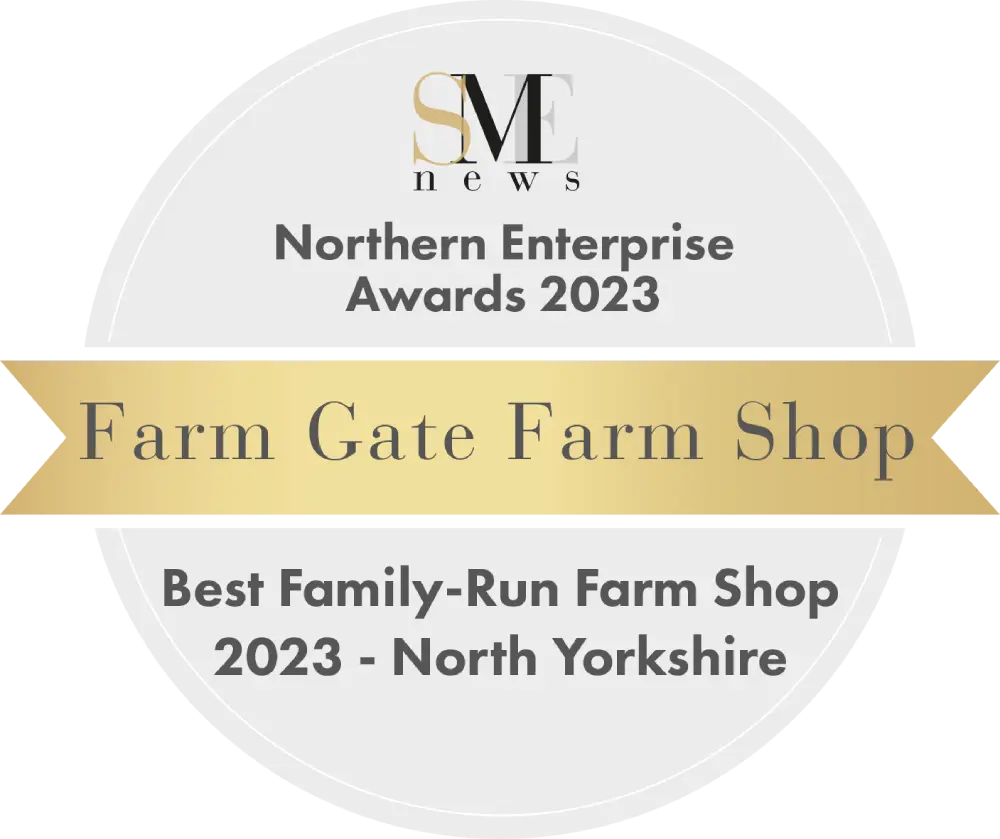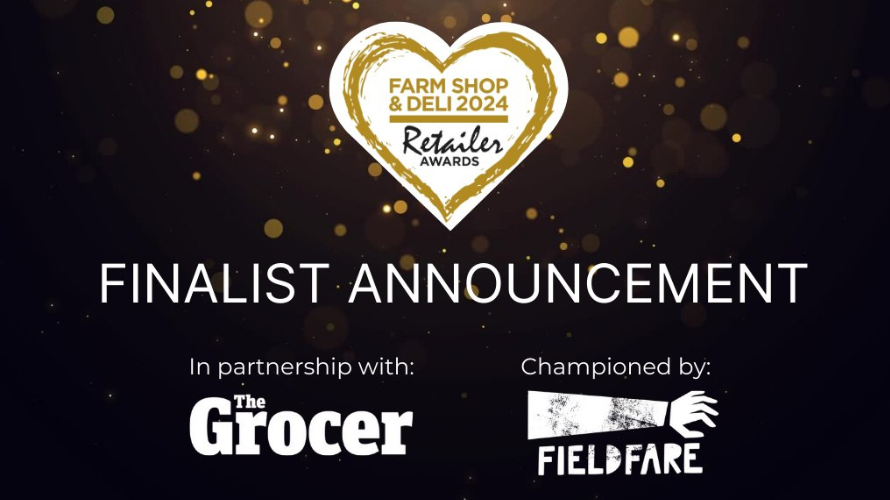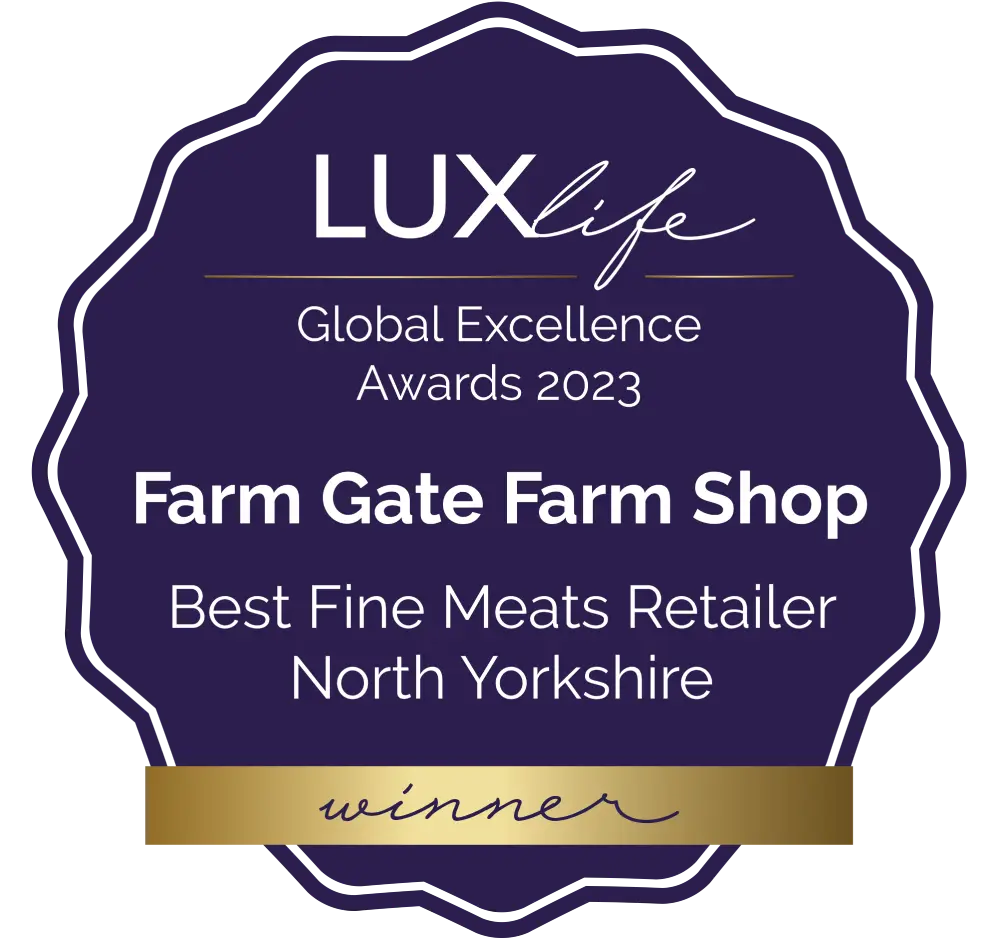Small-scale British farms produce the highest quality meat in the world. Sadly, it rarely makes it to supermarkets or butchers.
While free-range is more expensive than intensive indoor farming, we believe it’s 100% worth it. Not only is free-range farming more ethical and ensures a higher welfare, but you can taste the difference. It’s no lie; happy animals make delicious meat.
All our free-range pork is reared from farrow to finish on farm. While newcomers are often drawn to colourful rare breeds, such as the Oxford Sandy & Black, we decided to stick with a more local rare breed, the Large white, often known as the Yorkshire Pig. First seen at the Royal Agricultural Show in 1851, Large Whites are a very friendly native breed, known for producing especially lean, high-quality meat
Large Whites are famous for making excellent bacon and sausage due to their low-fat content, and in recent years, we’ve gained a reputation locally for producing some of the best sausages people have ever tasted.
Unlike commercially produced sausages, which only have to contain 52% pork, we believe that a good quality sausage should be jam-packed with meat, and therefore, our sausage range contains a minimum of 80% quality, free-range pork. We also do not use any artificial additives or preservatives. Simply seasoning, breadcrumbs, and pork mince..
All our bacon is also 100% chemical and nitrate free, making it less processed, and therefore, healthier. Some eagle-eyed customers might note that our bacon, when cooked, is slightly less pink than commercially produced bacon. This is simply because the chemical additives and nitrates tend to dye the meat a slightly dark colour, while ours is 100% natural.
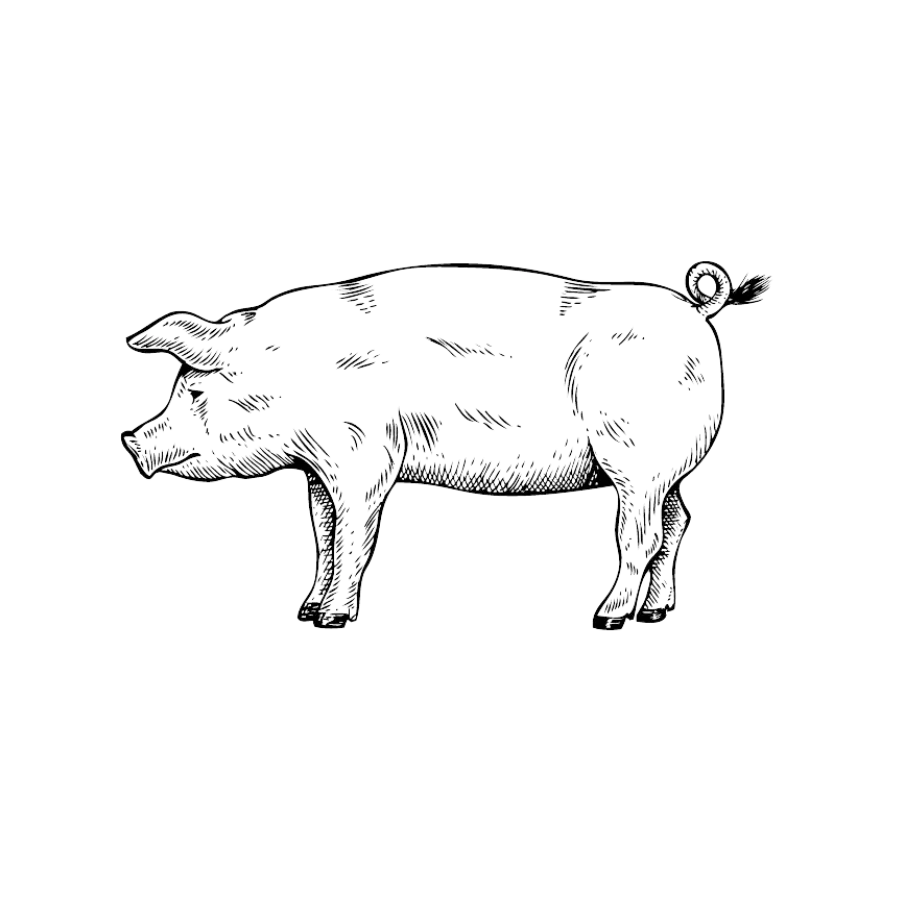

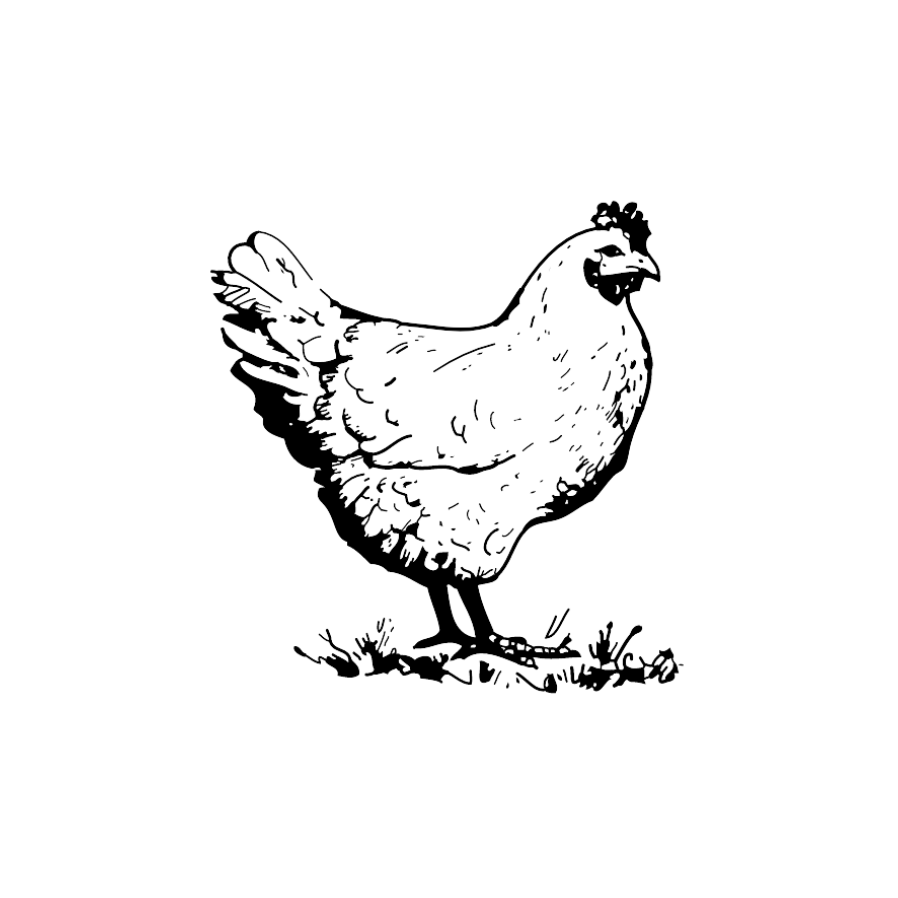
While most commercially produced free-range chickens are slaughtered at 42 days old, our birds are slow grown, living roughly 3x as long. This, combined with our free to roam grass paddocks ensures that our chickens develop strong muscles, and therefore, produce lean, tasty meat.
All our birds are fed on a GMO-free micronized ration, ensuring no ultra-processed feed is used. studies have shown that chickens fed on a GMO-free diet contain higher levels of micronutrients, including vitamins, minerals, and omega-3 fatty acids compared to indoor bred birds.

It’s a common belief that lamb is a fatty meat, but in our butchery counter, that couldn’t be further from the truth! We use a Wensleydale-cross, one of the largest, rare breeds, renowned for their broad shoulders and strong legs, making them excellent for chops and roasting joints.
Our flock, first established in 2008 began with just 7 ewes, affectionately named Allie, Annie, Fran, Lulu, Charlie, Jess, and Maureen. Since then, it has grown into a strong 50+ flock. The first recognised wensleydale sheep, known as Bluecap, was bred in 1839 in Kirkbymoorside, just 16 miles away from our farm, so it’s a truly local native sheep!
Rather than spring lamb, which is roughly 7 months old, we only sell hogget, which is between 1-2 years of age. This results in an equally tender meat to young lamb, but a deeper, richer flavour, without the fattiness.
All our lambs are free to roam on our south-facing grass meadows, composed of rich grass, full of micronutrients, with access to shelter during the bad weather. Due to the hardiness of the wensleydale breed, our ewes typically lamb outside, with our trusty farmers on hand for any struggling mothers.
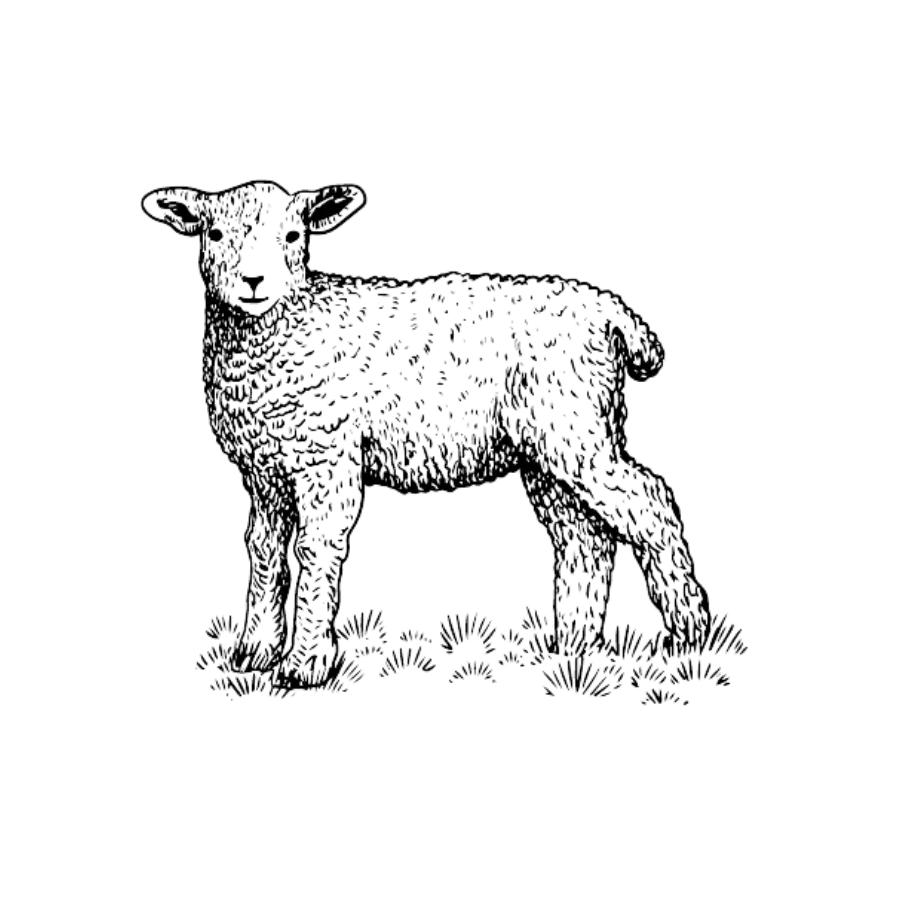

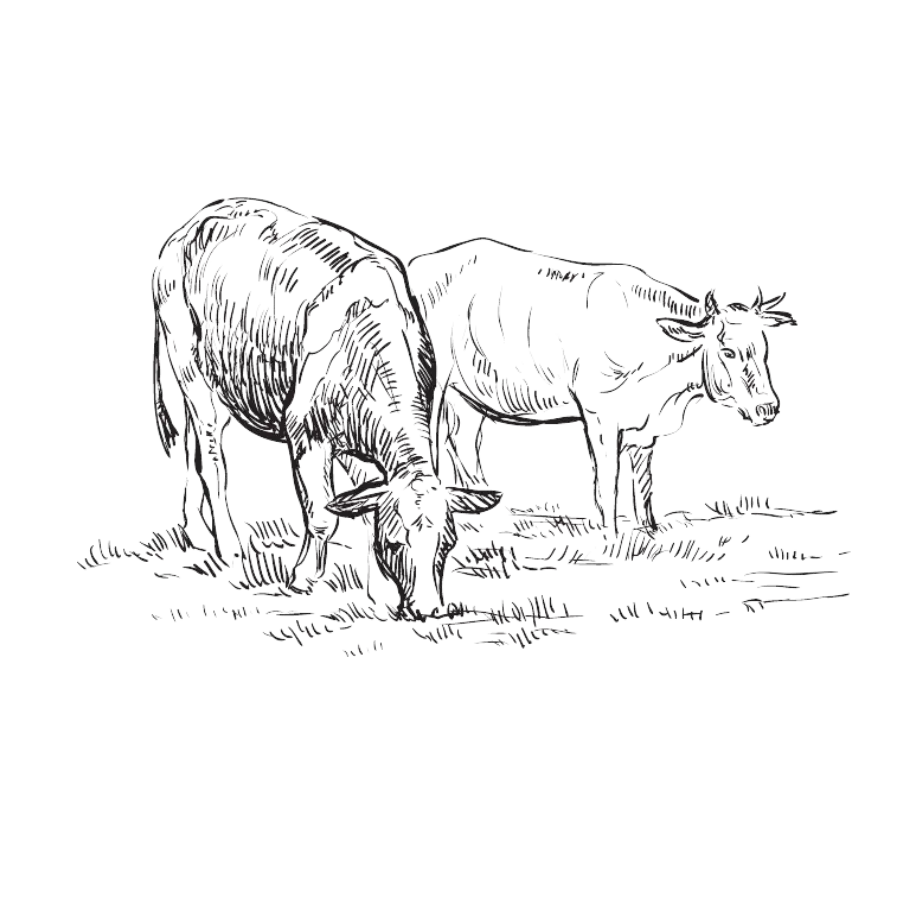
We source our grass-fed beef from the Durham Dales, working closely with the farmers to ensure the welfare and quality of the meat lines up with our high standards. Just like the rest of our range, it is slow grown, ensuring tender, lean, and flavoursome meat.
Our steaks, excellently butchered, ensure the perfect fat to lean meat ratio. Designed to be cooked slow, you’ll be hard-pressed to find a more tender steak anywhere.

While game, such as pheasant and venison, is often viewed as a delicacy, it’s a common staple in a countryman’s diet. All our game is wild, meaning that it has a lower fat and higher protein content than farmed meat, ensuring a rich, depth of flavour unlike any other.
Control of the natural population – Unlike large shooting drives which often shoot purely for sport, and frequently bury the birds afterwards, every animal that is shot by our local gamekeeper is used for meat. If it’s not fit for human consumption, the dogs enjoy it!
While many people view shooting as cruel, it’s more like natural selection. If left to their own devices, the population of wild game impacts other wildlife through disease and over population. It seems only right that we get to enjoy the delicious meat as a by-product.
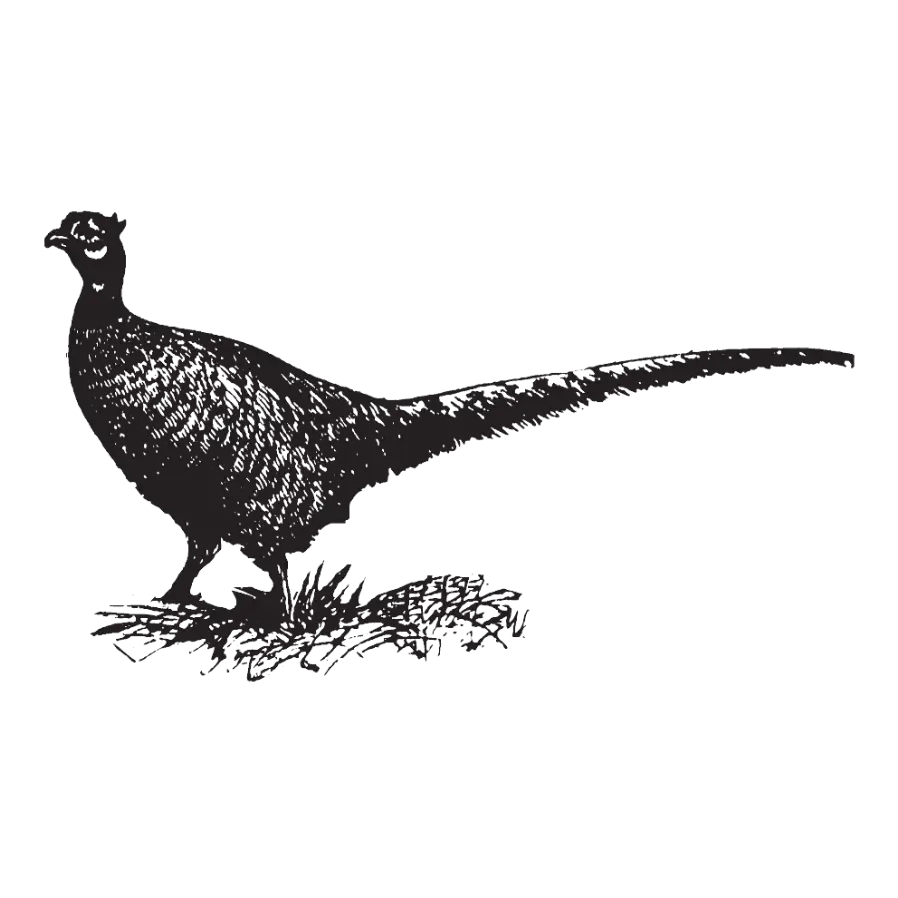
Friday and Saturday 9am – 2pm
Would you like to know more about our amazing farm shop and get our latest offers please sign up below to our newsletter.
